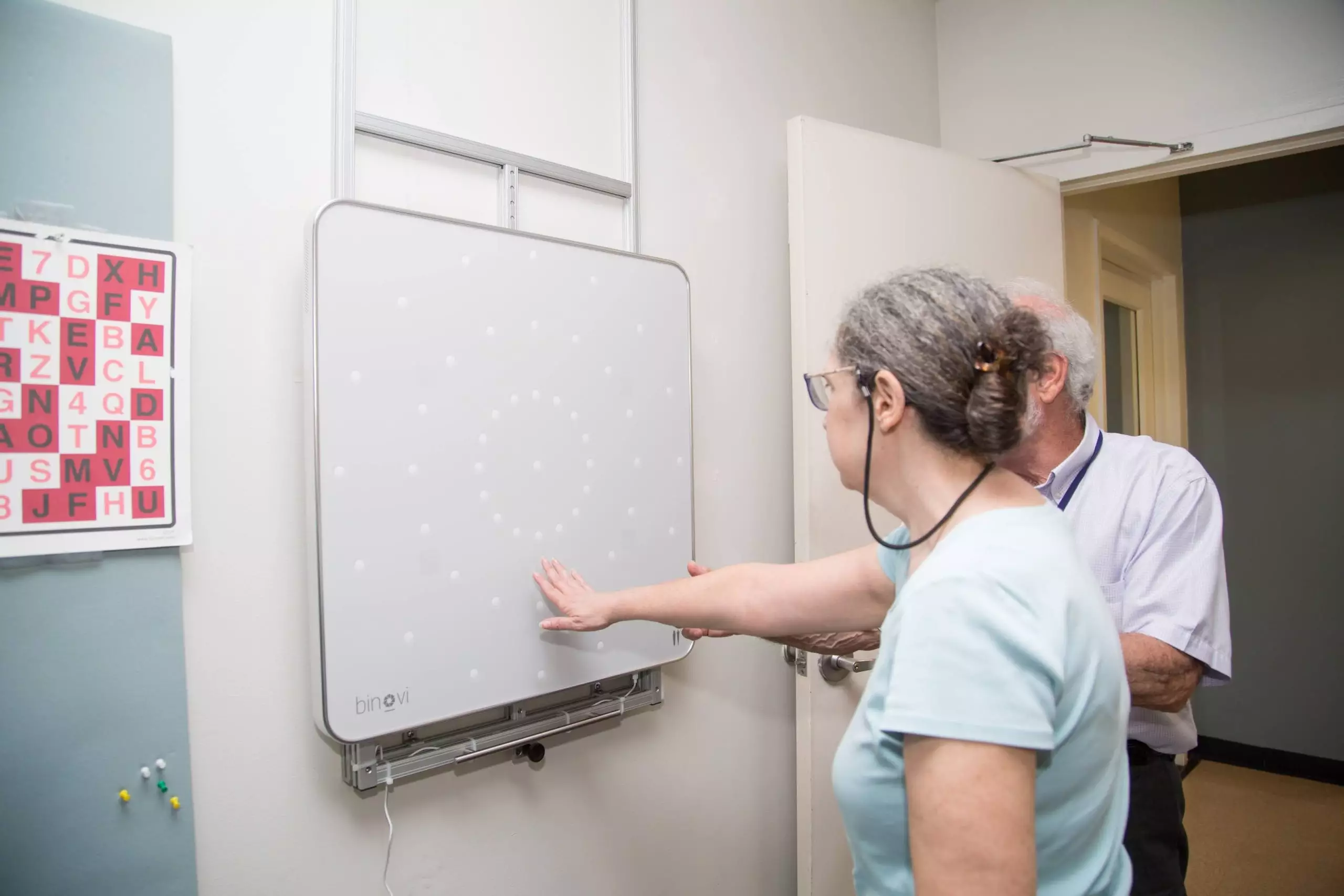Strokes, car accidents, falls, physical assaults, pedestrian accidents, or brain surgery may disrupt the visual process and interfere with the information flow and processing in the brain. Our doctors and practitioners seek to enhance our patients’ visual capabilities in order to improve their daily activities and quality of life. We also partner with rehabilitation hospitals and centers, occupational therapists, physical therapists, neuropsychologists, and other rehabilitation health care professionals throughout the region.
Many patients come to us several years after their initial injury or trauma. An initial consultation consists of a personal interview with a visual rehabilitative optometrist, including a comprehensive review of the patient’s visual problem and medical history. Numerous diagnostic tests relating to ocular motor function, refractive status, accommodative status, visual field, and ocular health may also be conducted. Treatment plans are developed, which may include special prism spectacles, vision therapy, referrals, and follow-up with other members of a patient’s health care team.

Acquired brain injuries (ABI) can include traumatic brain injuries (TBI), concussions, strokes, and other neurological events. In addition, patients experiencing visual snow syndrome (VSS) and visual-vestibular conditions can be assessed during this evaluation.
Visual sequela of ABI impacts activities of daily function including depth perception awareness, visual comfort and clarity (especially during prolonged near work), balance and posture while walking, and navigating through unfamiliar, noisy, and/or crowded environments.
• Headaches
• Light sensitivity
• Loss of place when reading
• Blurry vision
• Visual motion sensitivity
• Decreased reading comprehension and speed
• Eyestrain
• Double vision or diplopia
• Dizziness/nausea
• Decreased concentration
• Balance and posture problems
• Visual fatigue
• Words running together when reading
• Poor depth perception
• Peripheral vision difficulties
• Bumping into objects
• Visual distortions or disturbances (e.g., visual snow, floaters, flashes)
Spectacles which may include prisms and tints. Multiple pairs may be recommended depending on the symptoms.
Neuro-optometric rehabilitation therapy to treat dysfunctions related to oculomotor (eye tracking), binocular (eye teaming), accommodation (eye focusing), visual-vestibular, and visual processing/perceptual performance. Therapy may include optometric light therapy.
Typically, the evaluation requires two or more appointments depending on the severity of the symptoms and conditions.
• Comprehensive eye exam includes a refraction (determination of glasses prescription) and a dilated ocular health evaluation.
• Neuro-optometric rehabilitation evaluation specifically assesses the oculomotor (eye tracking), binocular (eye teaming), accommodation (eye focusing), visual-vestibular, and visual processing/perceptual functions. In addition, further testing related to light sensitivity, motion sensitivity, postural abnormalities, and visual field loss will be performed.